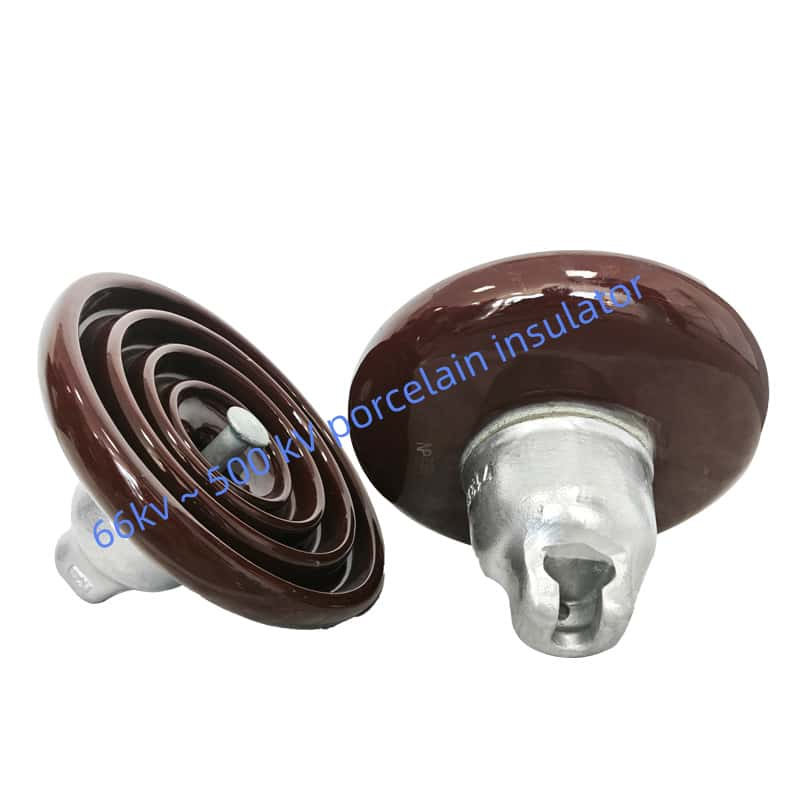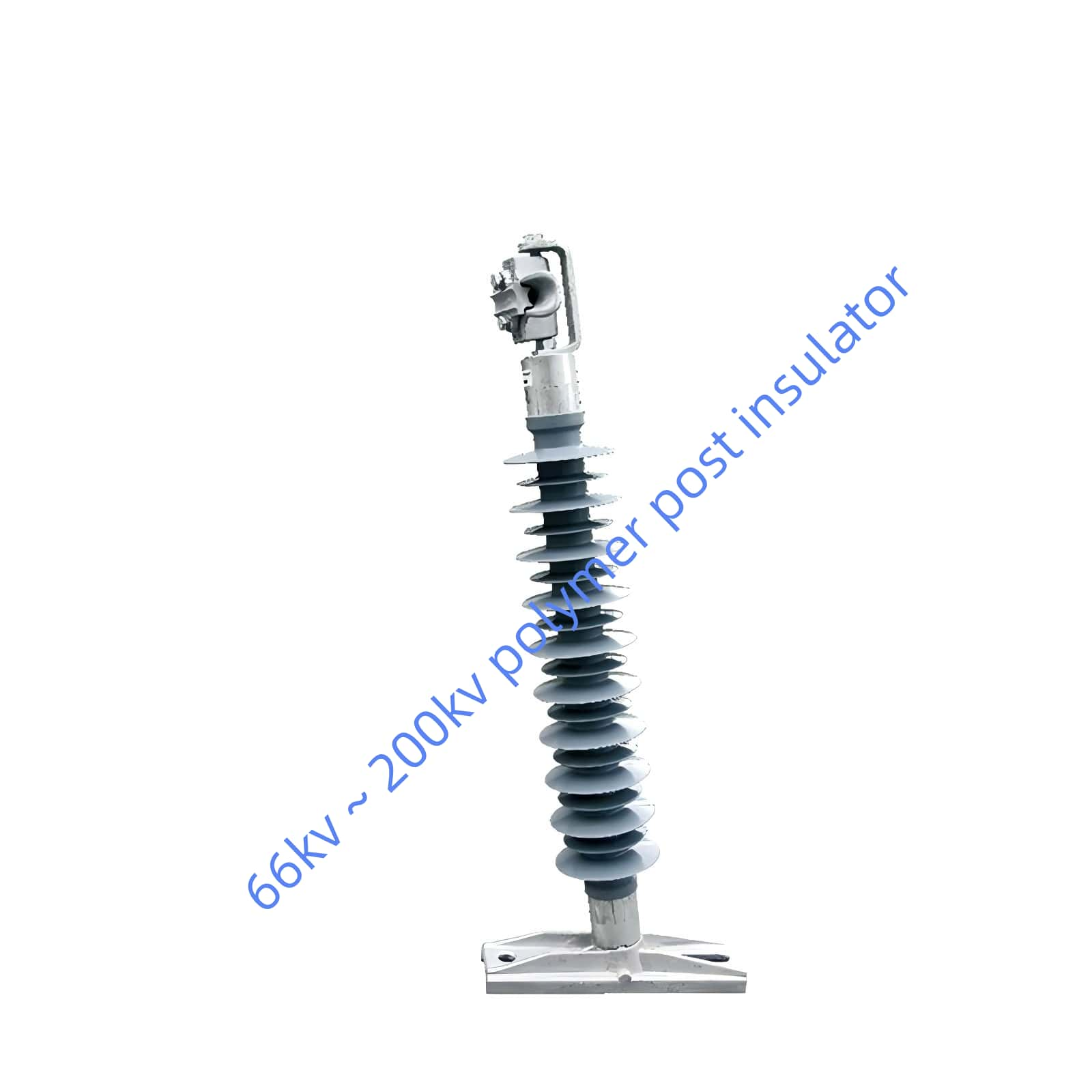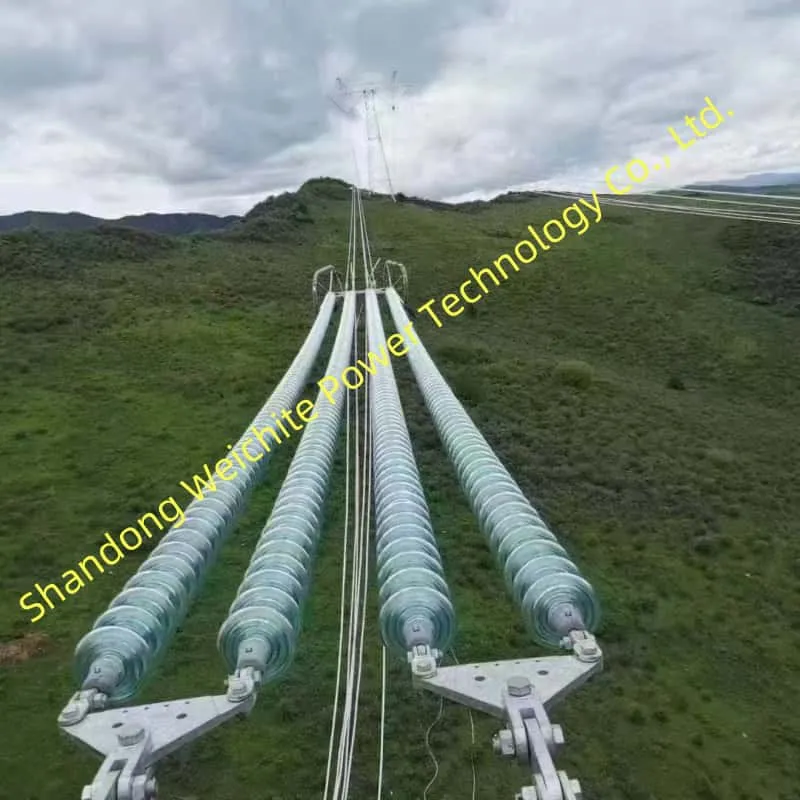Analysis of 66kV Overhead Power Lines and Selection Criteria for Insulators
Insulators are an important component of overhead power lines, and insulator failures are also a major cause of power line accidents. This paper summarizes examples from the 66kV power transmission lines of the Liaohe Oilfield over the past decade to provide guidance on the selection of three types of insulating materials: polymer composite insulators, high-voltage glass insulators, and high-voltage porcelain insulators.
After over four decades of rolling development and construction, the Liaoning Oilfield power system has formed a high-voltage system centered on the Pan Shu'an, Shenyang, Ci Yutou, Jinzhou, and Keerqin grids, spanning five regional grids across six cities in Liaoning and Inner Mongolia. The safety of the oilfield grid is critical to the oilfield's production safety, especially during winter. Prolonged power outages can lead to well and pipeline blockages, causing significant losses.
The main power lines of the oilfield grid substations are 66kV overhead lines, and insulators are a crucial component of overhead lines, serving to insulate and secure conductors. Currently, 60% of the insulators on 66kV overhead lines are disc-shaped suspension porcelain insulators, 30% are polymer composite insulators, and the remaining 10% are high-voltage glass insulators.
The following sections will discuss the three types of insulators used on the 66kV overhead lines in the Liaoning Oilfield.
The Liaoning River Oilfield power grid has selected a typical meteorological zone of Class VII in accordance with regulations, with a maximum wind speed of 30 m/s, maximum ice accumulation of 10 mm, minimum temperature of -40°C, and maximum temperature of +40°C. The C-class pollution zone is considered (unit creepage distance: 2.2–3.0 cm/kV).
Disc-shaped suspension porcelain insulators
All early 66kV power lines in the Liaoning Oilfield used anti-pollution disc-shaped suspension porcelain insulators (nominal creepage distance 400 mm), with five pieces per string and a unit creepage distance of 3.03 cm/kV. However, during later operation, although the unit creepage distance met the requirements, some lines near the coast experienced severe pollution, leading to insulator breakdown incidents. As a result, subsequent designs adopted six pieces per string, and additional insulators were installed for the five-piece configurations.

Polymer composite suspension insulators
Since the 1990s, the Liaodong Oilfield's 66kV power lines have adopted polymer column insulators, but these are only used on straight towers. On tension towers, ceramic insulators are still used (including jumper strings and tension strings).
Polymer composite suspension insulators have the following characteristics:
1) High strength and lightweight. The strength-to-weight ratio of polymer composite insulators is very high. Their high mechanical strength stems from the excellent mechanical properties of the fiberglass core rod. The tensile strength of fiberglass drawn rods can exceed 1000 MPa, while the core rod density is only approximately 2 g/cm³, resulting in a very high specific strength, approximately 5 to 10 times that of high-quality carbon steel. Under the same voltage rating, the weight of polymer composite insulators is approximately one-tenth that of ceramic insulators.
2) High wet flash-over and pollution flash-over voltage. The hydrophobic properties of the low-energy surface of organic polymer composite materials are the primary reason for the excellent moisture and pollution resistance of composite tension insulators. Under adverse weather conditions such as heavy fog, light rain, dew, melting snow, and melting ice, the surface of composite insulators forms separated water droplets rather than a continuous water film. The conductivity of the contamination layer is very low, resulting in minimal leakage current. This makes it unlikely for strong localized arcs to occur, and even if they do, they are unlikely to further develop into external insulation flashover. After a period of operation, the hydrophobicity of composite insulators can migrate to the surface of the contamination layer, a characteristic unique to silicone rubber materials. Under the same contamination level, their contamination flashover voltage can reach more than twice that of insulators with the same leakage distance. The equivalent diameter of ordinary rod-shaped suspension composite insulators is significantly smaller than that of ordinary
suspension porcelain insulators and post insulators, which is also an important reason for their excellent pollution resistance. Under adverse conditions, hydrophobicity may decrease or be lost due to electrical or environmental stresses, but the equivalent diameter will not increase, so the pollution flashover voltage will remain at a high level.
3) Convenient operation and maintenance. The superior pollution resistance of organic external insulation enhances the reliability of power system operation. In polluted areas, there is no need for regular cleaning like with porcelain or glass insulators, and there is no issue of zero-value detection for conventional suspension insulators, significantly reducing the operational maintenance costs of insulators in polluted areas.
4) Resistant to breakage, preventing accidents. Composite insulators have strong impact resistance, significantly reducing accidental damage during installation and transportation, and effectively preventing damage caused by human factors such as gunfire.
5) Since composite suspension insulators are made of organic materials, their resistance to aging is relatively poor.
6) Composite silicone insulators are relatively expensive.
7) Composite tension insulators use lower radial stress, so we still use porcelain insulators for tension towers.
Currently, new lines in the Liaohe Oilfield generally use polymer silicone insulators with a large and small umbrella structure, which effectively prevents bird droppings from causing breakdown. When selecting composite tension insulators, it is necessary to choose composite suspension insulators with appropriate pollution resistance based on the pollution level of the location.

High-voltage glass insulators
Since 2000, glass insulators have been adopted in 66kV power lines such as the Longxing No. 9 Line, Shuxing No. 3 Line, and Tianzhong Line in the Liaodong Oilfield. Glass insulators have the following characteristics:
1) High mechanical strength, approximately 1–2 times higher than that of porcelain insulators, particularly suitable for areas with heavy ice accumulation and potential conductor vibration.
; glass insulators also exhibit excellent temperature resistance, capable of withstanding temperatures up to 250°C.
2) Stable performance with minimal aging; electrical performance surpasses that of porcelain insulators; lightning impulse voltage resistance is approximately four times that of porcelain insulators; arc resistance is superior to porcelain insulators, with no significant decline in tensile strength.
3) Fewer production processes, shorter production cycles, conducive to mechanized and automated production, resulting in high production efficiency.
4) Due to the transparency of glass insulators, minor cracks and various internal defects or damages can be easily detected during external inspections.
5) If the glass body of the insulator has any defects, the glass body will automatically shatter, known as “self-breaking.” After self-breaking, the iron cap and residual hammer retain sufficient mechanical strength to remain suspended on the line, allowing the line to continue operating. When line patrol personnel inspect the lines, they can easily identify self-breaking insulators and promptly replace them with new ones. Due to the “self-breaking” characteristic of glass insulators, preventive testing of insulators is not required during line operation, which greatly facilitates operational convenience.
6) Glass insulators are lightweight. However, due to manufacturing processes and other factors, the “self-breaking” rate of glass insulators is relatively high, which is a significant drawback of glass insulators. Therefore, glass insulators are not suitable for use on urban power lines.
Currently, we adopt a differentiated design for two different power lines connected to the same substation: one line uses composite insulators, while the other uses glass insulators (six pieces per string). Based on feedback from the using units, this approach has achieved good results.
For the newly constructed 66kV overhead lines in the Liaohe Oilfield, polymer column insulators are generally used for straight towers, disc-shaped porcelain insulators for tension towers, and high-voltage glass insulators for the other incoming line of the same substation.

References:
1. “Design Specifications for Overhead Power Lines of 66kV and Below” GB50061-2010 China Electricity Council
2. “Guidelines for the Use of Composite Insulators for AC Overhead Lines with Nominal Voltages Above 1000V” DL/T864-2004 China Electricity Council
3. “Definitions, Test Methods, and Acceptance Criteria for Composite Insulators Used in AC Overhead Lines with Nominal Voltages Above 1000V” GB/T19519-2004 China Electrical Equipment Industry Association

